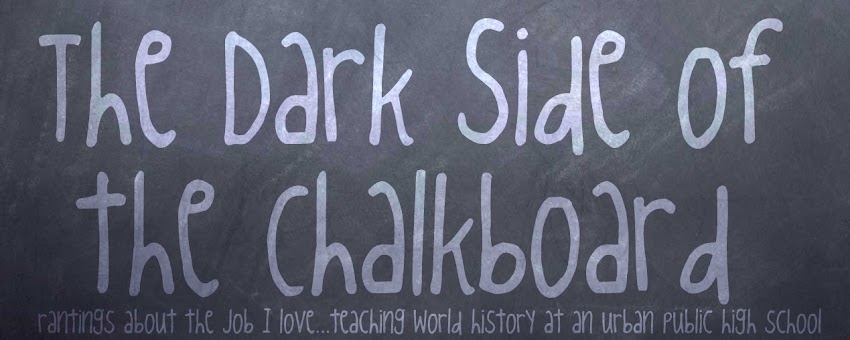I heard this on the news the other morning, but haven't seen it pop up much around the blogosphere, so I wanted to just throw it out there. A
Florida lawmaker has proposed a bill that would require parents to grade the parents of their students. Grades would be based on three stipulations:
- A child should be at school on time, prepared to learn after a good night's sleep, and have eaten a meal.
- A child should have the homework done and prepared for examinations.
- There should be regular communication between the parent and teacher.
Now on the one hand, I applaud the recognition that student performance cannot be laid completely on the teacher. While I am not a huge fan of Hilary Clinton, I do think the often overused saying that she popularized "It takes a village to raise a child" is completely right. And part of that village is the parents. I see far too many students come to school without eating breakfast, and of course they can't focus on school when their stomachs are growling and they have a headache. I would love it if parents supervised their students' homework. And just today I just attempted yet another most likely futile email to the parent of
Levi in a desperate bid to make his father understand the seriousness of the issues Levi is dealing with.
On the other hand, I don't see this ever becoming reality. This is something that will cause only problems between teachers and parents. Like standardized testing, it is focused on punishment rather than positive communication. But it is an interesting take on public education.

4 comments:
As a parent, I have tried to do all these things for my children, at least while they were in elementary school. As they get older though, I try to make them take responsibility for their own homework--with mixed results. I have a boy in 7th grade right now who is causing me grief. Do I make it clear that managing homework is his responsibility and let him suffer the consequences when he fails to take it seriously (and risk setting a bad tone for his high school experience)? Or stay on top of it myself, cajole him into sitting down and doing it, and risk having to maintain this level of hand-holding throughout high school (and risk him having no internal drive to manage his assignments when he moves on to colloege)? So far, nothing seems to work...
yup, exactly. At some point they have to sink or swim. The only thing that I agree with is the willingness to recognize that home factors impact education, especially in those early grades.
As a teacher (and a parent of four very diverse children), I am willing to take my share of the blame, but a third goes to the student and a third to the parent. It simply cannot be all the teachers' faults. The students have to have some skin in the game, and while the parents have to answer for attendance, that's about it.
I agree, Hillary can be annoying as all get-out, but she has a valid point. No one single person is responsible for the way a child performs, good or bad. The only way we can overcome the tar baby of standardized testing is to work together.
Everyone who cares about young people cares about our
schools. Our best schools nurture our children, make them feel safe, and able
to take the risks they need to in order to learn. But our schools are in danger
of becoming even more narrowly focused on test preparation, while class sizes
rise, and teachers are blamed for the ravages poverty inflicts on their
students.
We are responding. We love our schools. We declare
Valentine’s Day, 2011, to be I Love Public Education Blog Day. On this day we
will write our hearts out, about why it is that public education is so
important to us, our children, and our democratic society. If you or your readers will join us and tell why you love public education too, send your comments and posts to saveourschoolsmarch@gmail.com.
Writing will be displayed at the www.SaveOurSchoolsmarch.org website, and will be tweeted with the
hashtag #LovePublicEd. We offer the march and events of July 28 to 31st
in Washington, DC, as a focal point for this movement, and we ask participants
to link to this event, so we can build momentum for our efforts. If your readers wish to repeat this post on their own blog, we would love it.
Post a Comment